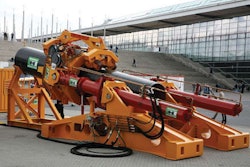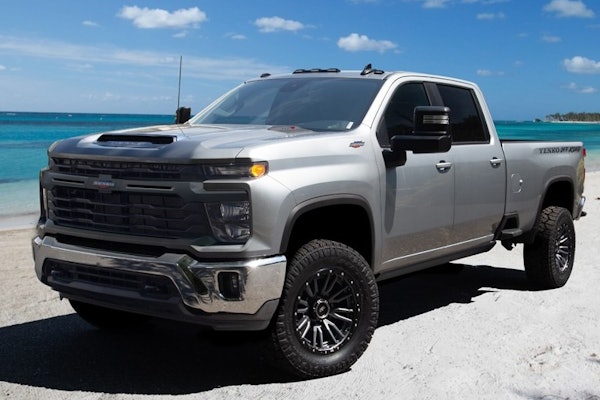U.S. Transportation Secretary Ray LaHood on Dec. 15 announced that 46 transportation projects in 33 states and Puerto Rico will receive a total of $511 million from the third round of the U.S. Department of Transportation’s (DOT) popular TIGER program.
The announcement comes months ahead of schedule, and will allow communities to move forward with critical, job-creating infrastructure projects including road and bridge improvements; transit upgrades; freight, port and rail expansions; and new options for bicyclists and pedestrians, according to the U.S. DOT. The DOT received 848 project applications from all 50 states, Puerto Rico and Washington, D.C., requesting a total of $14.29 billion, far exceeding the $511 million made available for grants under the TIGER III program.
“The overwhelming demand for these grants clearly shows that communities across the country can’t afford to wait any longer for Congress to put Americans to work building the transportation projects that are critical to our economic future,” LaHood said in a written statement from the U.S. DOT. “That’s why we’ve taken action to get these grants out the door quickly, and that is why we will continue to ask Congress to make the targeted investments we need to create jobs, repair our nation’s transportation systems, better serve the traveling public and our nation’s businesses, factories and farms, and make sure our economy continues to grow.”
In November, President Obama directed DOT to take common sense steps to expedite transportation projects by accelerating the process for review and approval and by leveraging private sector funding to promote growth and job creation.
As part of that initiative, DOT accelerated the TIGER III application review process and has announced the awards before the end of 2011 – months ahead of the planned spring 2012 announcement.
The grants will fund a wide range of innovative transportation projects in urban and rural areas across the country:
• Of the $511 million in TIGER III funds available for grants, more than $150 million will go to critical projects in rural areas.
• Roughly 48 percent of the funding will go to road and bridge projects, including more than $64 million for Complete Streets projects that will spur small business growth and benefit motorists, bicyclists and pedestrians.
• 29 percent of the funding will support transit projects like the Westside Multimodal Transit Center in San Antonio.
• 12 percent will help build port projects like the Port of New Orleans Rail Yard Improvements.
• 10 percent will go to freight rail projects like the Muldraugh Bridge Replacement in Kentucky.
• Three grants were also directed to tribal governments to create jobs and address critical transportation needs in Indian country.
• Three grants will provide better multimodal access to airports, including DFW in Texas.
Work has already begun on 33 planning projects while 58 capital projects are under way across the country from the previous two rounds of TIGER, and an additional 13 projects are expected to break ground over the next six months.
In 2009 and 2010, the Department received a total of 2,400 applications requesting $76 billion, greatly exceeding the $2.1 billion available in the TIGER I and TIGER II grant programs. In the previous two rounds, the TIGER program awarded grants to 126 freight, highway, transit, port and bicycle/pedestrian projects in all 50 states and the District of Columbia.
TIGER grants are awarded to transportation projects that have a significant national or regional impact. Projects are chosen for their ability to contribute to the long-term economic competitiveness of the nation, improve the condition of existing transportation facilities and systems, increase energy efficiency and reducing greenhouse gas emissions, improve the safety of U.S. transportation facilities and enhance the quality of living and working environments of communities through increased transportation choices and connections.
The Department also gives priority to projects that are expected to create and preserve jobs quickly and stimulate increases in economic activity. The continuing demand for TIGER grants highlights the need for further investment in the nation’s transportation infrastructure that could be provided by President Obama’s American Jobs Act.
The American Jobs Act would provide $50 billion to improve 150,000 miles of road, replace 4,000 miles of track, and restore 150 miles of runways, creating jobs for American workers and building a safer, more efficient transportation network. It would also provide $10 billion for the creation of a bipartisan National Infrastructure bank. A complete list of grant recipients can be viewed at www.dot.gov/tiger/docs/FY2011_TIGER.pdf.










